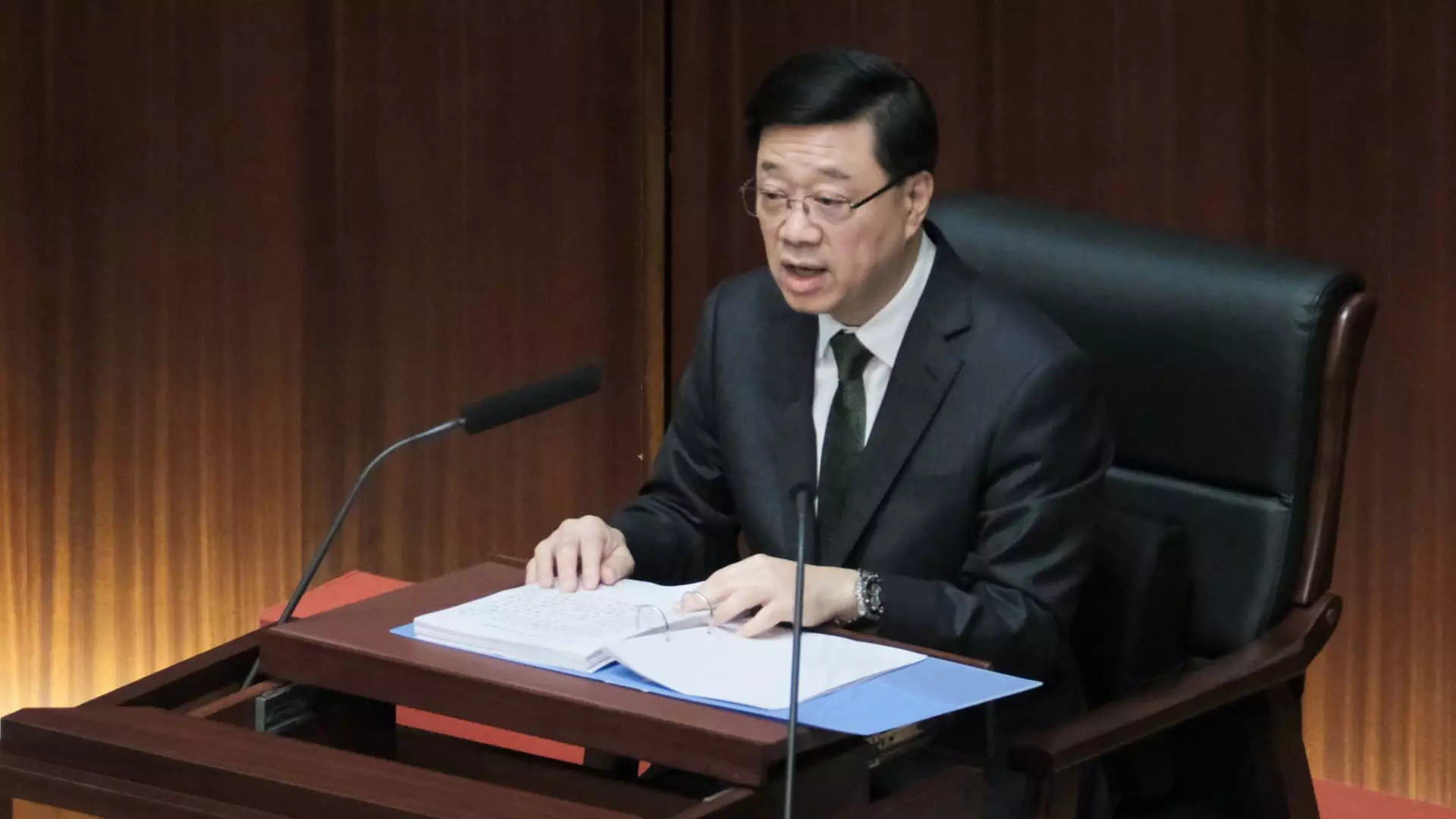In a recent policy address, Hong Kong’s Chief Executive, John Lee, acknowledged an urgent issue plaguing the city: housing affordability. With the international Demographia International Housing Affordability report consistently ranking Hong Kong as the least affordable city globally, the urgency behind Lee’s commitments cannot be overstated. This ongoing crisis has pushed many young residents to reconsider their career paths, often opting for stagnation in employment to maintain their eligibility for public housing. This desperate situation reveals underlying systemic issues that require a comprehensive strategy rather than superficial solutions.
Proposed Measures to Aid Young Residents
Among the most significant proposals presented by Lee is an initiative aimed at enhancing access to subsidized housing for individuals below the age of 40. The introduction of an additional ballot number specifically for this demographic represents a deliberate effort to amend the balance in housing opportunities. Notably, this plan also involves expanding the quota for the “White Form Secondary Market Scheme,” allowing 1,500 more households to engage in the purchase and sale of secondhand subsidized flats without incurring a land premium. Unfortunately, given that only 4,500 households could access these flats in 2023, this increase seems minuscule relative to the extensive demand.
Moreover, the persistent wait for public housing—averaging 5.5 years—indicates that additional measures may merely scratch the surface of a much deeper problem. The government’s intentions, while positive, could evoke skepticism among citizens, as previous attempts have not sufficiently alleviated the chronic housing pressures that typify Hong Kong’s urban landscape.
The plight of over 100,000 residents residing in “shoe-box” subdivided flats exemplifies another facet of the housing crisis. These cramped living conditions are not only a symptom of economic disparity but are also linked with health and safety hazards. Lee’s proposal for a new regulatory system to convert substandard units into “Basic Housing Units” is a step in the right direction. However, simply imposing new requirements for size and sanitation without addressing the broader socioeconomic factors at play may yield only temporary relief.
The government’s plan to ensure that these units possess basic amenities such as windows and toilets seems utterly necessary but quite basic in a city aiming for progressive urban living. It begs the question: will these incremental changes be truly transformational for residents who spend a significant portion of their income on cramped and inadequately serviced homes?
Looking towards the future, the forthcoming construction of 9,500 new public housing units stands as a commendable goal as part of Lee’s broader initiative to complete around 30,000 units by 2027-2028. While these figures indicate a governmental acknowledgment of the housing shortage, the effectiveness of this strategy remains contingent on prompt execution without bureaucratic delays. Delays in infrastructure projects have hampered previous undertakings, and residents’ patience is wearing thin.
Moreover, the projection that the average wait time for public housing could decrease to 4.5 years by 2026-2027 raises eyebrows, particularly as many residents currently navigating the labyrinthine public housing system may find this timeline overly optimistic. To invigorate public trust, the government must ensure transparency and accountability in its operations to fulfill its commitments.
While Chief Executive John Lee’s initiatives showcase a newfound emphasis on addressing the pressing concerns of housing affordability, the multifaceted problems intertwining economic viability and social justice in Hong Kong necessitate a far more robust approach. The city’s chronic housing crisis demands sustained efforts that go beyond isolated measures; it requires profound structural reform and collaborative efforts between the government, private sector, and civil society. Only through cohesive action can Hong Kong move towards an environment where all residents can access safe and affordable housing, rather than perpetuating cycles of exclusion and discontent.

